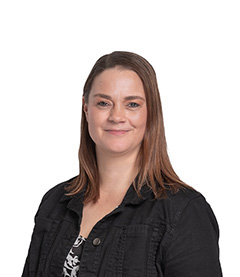
But do-it-yourself investment strategies will only get you so far. Once you have significant assets, financial self-service is almost always a false economy.
Why does this happen? Some people don’t trust anyone else with their money. Some are retired and think that they have the time to do their own research. They often prefer to rely on friends at the pub, or their golfing buddy, or ChatGPT.
Whatever the reason, their DIY money management typically prevents major losses, so they think everything’s just fine. In fact, we see the real costs: significant lost opportunities to grow their wealth, combined with costly fixes after they’ve made a critical error with tax or legal matters.
You can’t be a legal, tax and investment expert
Despite the best efforts of many high-net-worth individuals (HNWIs), it is not possible to be a simultaneous expert in law, tax and investment. It requires ongoing professional development for lawyers, accountants and financial advisors to stay on top of what they need to know. Even if you’re retired and have time to dedicate to researching online, that is no substitute for genuine expertise. This holds even if you were formerly worked as a lawyer, an accountant or a financial adviser.
HNWIs who try to DIY their finances tend to vastly underestimate the complexity of the task. For example, you might have international investments but neglect to take the foreign investment fund (FIF) rules into account. Situations like this require an expert to manually convert currency and calculate taxes retroactively, this can be particularly time consuming if there are hundreds of trades involved. I won’t go into all the technical details but trust me when I say this is the least cost-effective method for calculating FIF!
Tax returns and adjustments are far messier and more complex than the average person anticipates, and they get increasingly complicated as the numbers grow. Greater wealth magnifies the impact of your decisions, good and bad. A small tweak can be worth thousands of dollars when you have a large portfolio. Similarly, a minor tax error might not have a significant effect on someone with few assets, but be a costly problem to a HNWI.
Getting your team together
You need to assemble a team to help you manage your money, including financial, legal and accounting professionals. These are the cornerstones, but you might add optional extras such as brokers for mortgages or insurance, personal bankers or family office services.
A financial advisor will help you develop a strategy to bridge the gap between your current finances and your goals for the future. They will tailor your asset allocation to your risk profile. And they’ll provide reports that your accountant will use to optimise your taxation.
Your accountant helps you navigate tax implications, reporting requirements, and compliance obligations. They deal with Inland Revenue on your behalf, file returns, and deal with the complexities of international and local tax.
Your lawyer can help you structure your assets in the most beneficial way. They help you protect your wealth and your assets, and prevent you from falling into legal loopholes or traps.
All three professions work together to optimise your wealth, help you reach your goals and save you money. Choose professionals who are experts in their own field, with a wider network they can call on for specialist advice. They also need to be people you enjoy spending time with: can you be open with them? Do you trust them? Do you value their opinion? You might ask your friends or colleagues for recommendations, and meet with a few different options. Once you’ve got a team, build a working relationship with each person, and connect them with each other, so they can easily cooperate to help you make the best possible decisions.
The right team will provide you with independent advice that can supercharge your success and grow your wealth.
Good professional advice pays for itself
Spending money on professional advice should give you a positive return on your investment. Financial advice increases your returns by 4%, according to research by the NZ Financial Services Council. On $1 million of assets, that’s additional income of $40,000 that you’re missing out on if you don’t get advice – and will more than cover the costs. Advised clients were found to have 52% more in their KiwiSaver accounts and save 3.7% more of their income, compared to non-advised New Zealanders.
Accountants also provide you with a strong return on investment, thanks to expert tax advice. The benefits include tax savings, improved structuring, and avoiding penalties – or worse, an audit by Inland Revenue. Lawyers will tell you the same thing: a few hours of advice, even at a high hourly rate, is cheaper than dealing with a legal issue.
It can feel painful to pay for advice, but the cost of not covering yourself could be devastating. Errors and missteps in any of these areas can be crippling.
When you might need a team: Retirement, inheritance or business success
If you have significant assets, you need a team of advisors. That might happen gradually, if you’ve grown your wealth over time thanks to smart investing and saving. But it can also happen suddenly, due to an inheritance or a business buy-out, for example.
Alternatively, you might need more advice when your life circumstances change, whether that’s an expanding family or you’re stepping away your business. Having the right team might even be part of educating the next generation about how to manage their inherited wealth effectively.
Whether you’re just starting to grow your wealth, or you’re trying to protect it for the grandchildren, taking a DIY approach is a false economy. The right team of advisors is an enormously powerful tool to optimise your investments and make them last as long as possible.
Get articles and updates relevant to your business and industry delivered directly to your inbox.

